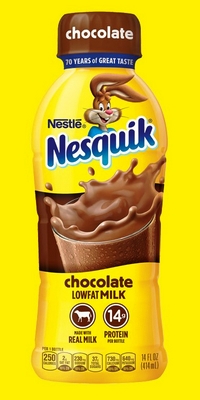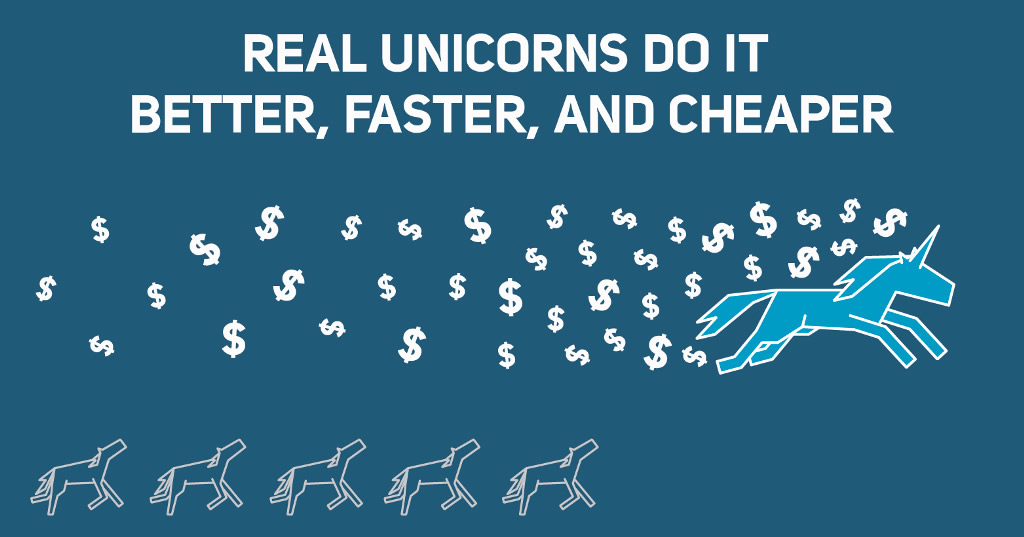Unicorns, like free markets, don’t exist. In high-school, we learn about Adam Smith’s free-market economy – an “invisible hand” guiding the “reasonable man”. However, upon closer inspection it becomes evident that the “invisible hand” is nothing more than marketing departments and corrupt politicians. and the “reasonable man” is an under-educated child.
“In the world of advertising, there’s no such thing as a lie.
There’s only ‘the expedient exaggeration.’”
– Roger Thornhill (North By Northwest)

Fat and Sugar
It is why advertising and marketing mean the same thing. As a result, the “invisible hand” guides the “reasonable man” into making bigger-is-better consumer decisions based on “what is cheapest and most convenient for me, right now”. Not so invisible or reasonable after all.
Governments subsidize irrelevant industries and noncompetitive companies with taxes it collects from its citizens. Meanwhile, it cuts funding to social programs like health care and education, thereby reducing those same citizens to sick idiots.
But, there is always room for corporations to fill the void. They brand children’s minds with cartoon logos, and sponsor school lunch programs with salt, fat and sugar.
Politicians need money to get elected. And, those who fund the campaigns expect a return on their investment in the form of preferential legislation.

Industry-funded political advertising
It is not uncommon – in the some of the most corrupt political systems – for lobbyists to write the legislation themselves. All the politician has to do is sign the document. In many cases, the legislators were, or will become, lobbyists for the industries or directors of the companies that supported their campaigns.
A Disposable Society

Disposable Coffee Pods
It isn’t surprising to find concepts like disposable income and free time in a culture hooked on convenience. How many times does the television entice us with a “flushable” product?
When it has reached the end of its usefulness, we can “just throw it away”. And in today’s modern societies, income is as disposable as the products it buys.

Entitled Indebtedness
Today, a lifetime of debt is almost guaranteed. Cheap credit isn’t very cheap after the first year, and it becomes harder to file for bankruptcy as banks and other corporations become more powerful.
Free time, like the free market, isn’t very free at all. Future generations pay for it. Today’s cheap and convenient products come at the expense of social programs and environmental protection that tomorrow’s taxpayers will be unable to afford.
Many will enter the workforce already straddled with student loans that will take years to repay, if they can be repaid at all. And the jobs they hope will finance their debts are being filled by automation and AI.
Juvenile Entitlement

First-World Problems
Life on this planet is not meant to be easy. For every other species, and the majority of ours, every day is a constant struggle for mere survival. Despite claims like “you deserve a beak today”, few people in the developed world deserve the lifestyles they lead.
This juvenile sense of entitlement is a direct result of deliberate corporate marketing strategies, designed to deliver fat and lazy consumers to the commercial trough.
Although corporations may encourage us to “think about it”, they don’t want us to think too hard or long about it. If we do, we might realize the absurdity of their claims and products. Advertising has become nothing more than promoting image over quality, and fantasy over reality.
“Advertising is based on one thing – happiness.
Happiness is the smell of a new car. It’s freedom from fear.
It’s a billboard on the side of a road that screams with reassurance
that whatever you’re doing is OK. You are OK.”
– Don Draper (Mad Men)
What it doesn’t do is encourage us to be mindful of our actions, appreciate what we already have, or seek balance in our lives. It appeals to our basest instincts of vanity and laziness, and develops a social expectation for adults to continue behaving like adolescents. And, why not? After all, marketing to children generates the highest returns.
Standard of Living vs. Quality of Life
The same economic interests that confuse market forces with marketing forces have also convinced us that our standard of living is synonymous with our quality of life. As a result, this corporate conflation has rendered us into slaves to a fickle and overbearing economy and lifelong debt.

Stupid Is As Stupid Buys

Rated M for Mature?
We blindly accept that a healthy economy will increase our disposable income and consequently, our standard of living. We have been duped by corporate marketing into accepting that the bigger homes, cars and TVs our disposable income affords us somehow augment the quality of our lives, when in fact the opposite is quite true. Once we start sliding down the slippery slope of “more is more and bigger is better”, it is almost impossible to get off the slide.
But, people are like water. We will always seek the path of least resistance. We have willingly allowed ourselves to accept that low cost and high convenience can coexist in the same product. We willingly participate in a culture of gratification that can never be fulfilled – dooming us to a life of misery and denial. It is no wonder that pharmaceutical companies reap huge returns from the sale of anti-depressants, further profiting from the viscous cycle of desire and depression.
Fools And Their Money
We turn a blind eye to our bulging waistlines and hazy skylines. Meanwhile, we trample over each other to buy the latest gadget and gimmick before anyone else. We do this foolishly, knowing that the product is already obsolete with a newer model waiting in the wings. And, we justify our purchases of eco-products without asking what the “eco” stands for – ecology or economy.

Perpetuate the problem …

… Co-opt the solution
Economic models invented at the beginning of the industrial revolution – when pollution, obesity, urban sprawl and billboards were essentially non-existent – shape our contemporary capitalistic mindset. What would our world look like today if these economic theories had included environmental impacts and the human mindscape in their macro- and micro-economic formulas, rather than downloading “externalities” onto society and the planet – the same society and planet upon which the markets rely?
For our economic system is to survive the social and environmental challenges it faces, the prices of goods and services must balance cost with convenience. For the market to be free, governments must stop subsidizing irrelevant and obsolete industries, and advertisers must be held to a higher level of transparency. This can only be done by applying appropriate levies on products that harm rather than help our society and environment, and regulating misleading and political advertising.

The Myth of Unattainable Beauty

The Illusion of Insatiable Desire
This cannot be left the private sector (ie. corporations), who can be only trusted to serve shareholder value and coerce “consumer-choice” through confusion and illusion. Until then, we will continue being processed into consumers rather than nurtured into citizens, and chasing unicorns that don’t exist.






Leave A Comment